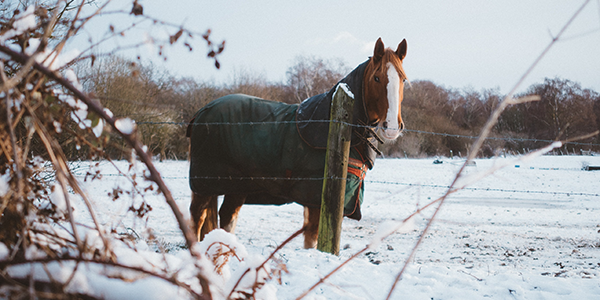Not all horses are the same, but generally speaking senior horses need a little more care during the winter months. Now is a great time to get your horses examined before the real cold gets here. Your vet can assess your horse’s weight and make specific recommendations for their nutritional needs. Continue reading for some more tips on how to get your senior horses ready for winter. Also, if you are looking for a horse property for sale in Colorado, contact Colorado Horse Property today and speak with one of our horse-person realtors.
Keeping Your Senior Horses Warm
Diet is important in keeping your horse warm. Within minutes of eating a meal, the horse’s digestive processes begin to generate heat and warm the body. Also, a lot like humans, calories that aren’t immediately absorbed are stored as fat. Fat is the ultimate insulation for horses. Older horses tend to have less fat on them, so make sure they have plenty of hay to eat this winter. Did you know that most horses consume 2% of their body weight in hay per day? For a 1,000-pound horse, that’s 20 pounds of hay! In winter you’ll probably need to increase that amount for your senior horse.
It’s a common misconception that horses have to have blankets on when it is cold or snowing. Rain and wind are actually worse, so make sure your senior horses have access to shelter. Shovel a path and put down straw, hay, gravel, or shavings to make it a safe surface for walking. But here’s the bottom line. An older horse with the proper weight and no health issues probably does not need a blanket. Leaner senior horses or horses with health issues should be blanketed. Shivering is a sign they definitely need a blanket.

